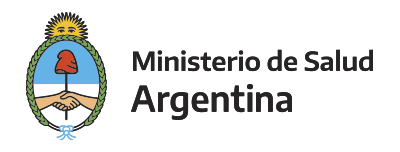Please use this identifier to cite or link to this item:
http://sgc.anlis.gob.ar/handle/123456789/1479| Title: | A decade of targets and patented drugs for chemotherapy of Chagas disease | Authors: | Duschak, Vilma G | Keywords: | Enfermedad de Chagas;Péptido Hidrolasas;Enfermedades Parasitarias | Issue Date: | 1-Sep-2011 | Journal: | Recent patents on anti-infective drug discovery | Abstract: | Chagas disease, a parasitic infection typically spread by triatomine bugs, affects millions of people throughout Latin America. Current chemotherapy based on the nitroaromatic compounds, benzonidazole and nifurtimox provides unsatisfactory results and suffers from considerable side effects. Therefore, there is still an urgent need for new drugs to treat this neglected disease. During the last decade, the advances and understanding in the biology and biochemistry of Trypanosoma cruzi have allowed the identification of multiple new targets for Chagas' disease chemotherapy. Among the most promising targets for antiparasitic drugs are: cruzipain, the main cysteine protease of T. cruzi, essential for parasite survival and proliferation in mammalian host; ergosterol biosynthesis pathway; trypanothione synthesis and thiol-dependant redox metabolism. Specific enzymes of the glycolytic, pentose phosphate, polyisoprenoid (farnesylpyrophosphate synthase) and other particular biosynthetic pathways as well as enzymes from purine salvage (hypoxanthine-guanine phosphoribosyl-transferase, dihydrofolate reductase) have also been intensively studied in T. cruzi. In particular, trypanocidal agents that target the validated biochemical pathways of the parasite including cysteine proteinase inhibitors and inhibitors capable to block ergosterol biosynthesis are currently in the pipeline. Among the latter, posaconazole and ravuconazole, are planned to enter in clinical trials for trypanocidal chemotherapy in the near future. This review will summarize advances on antichagasic agents directed to specific parasite targets such as metabolic pathways or specific enzymes. Related patents filed and issued from 2000 to 2010 claiming inhibitors for specific parasite targets will be also discussed. Among them, the most represented were those related with cysteine proteinase inhibitors. |
Description: | Fil: Duschak, Vilma G. ANLIS Dr. C. G. Malbrán. Instituto Nacional de Parasitología Dr. Mario Fatala Chaben; Argentina. |
URI: | http://sgc.anlis.gob.ar/handle/123456789/1479 | DOI: | https://doi.org/10.2174/157489111796887864 |
| Appears in Collections: | Publicaciones INP |
Show full item record
Items in DSpace are protected by copyright, with all rights reserved, unless otherwise indicated.

